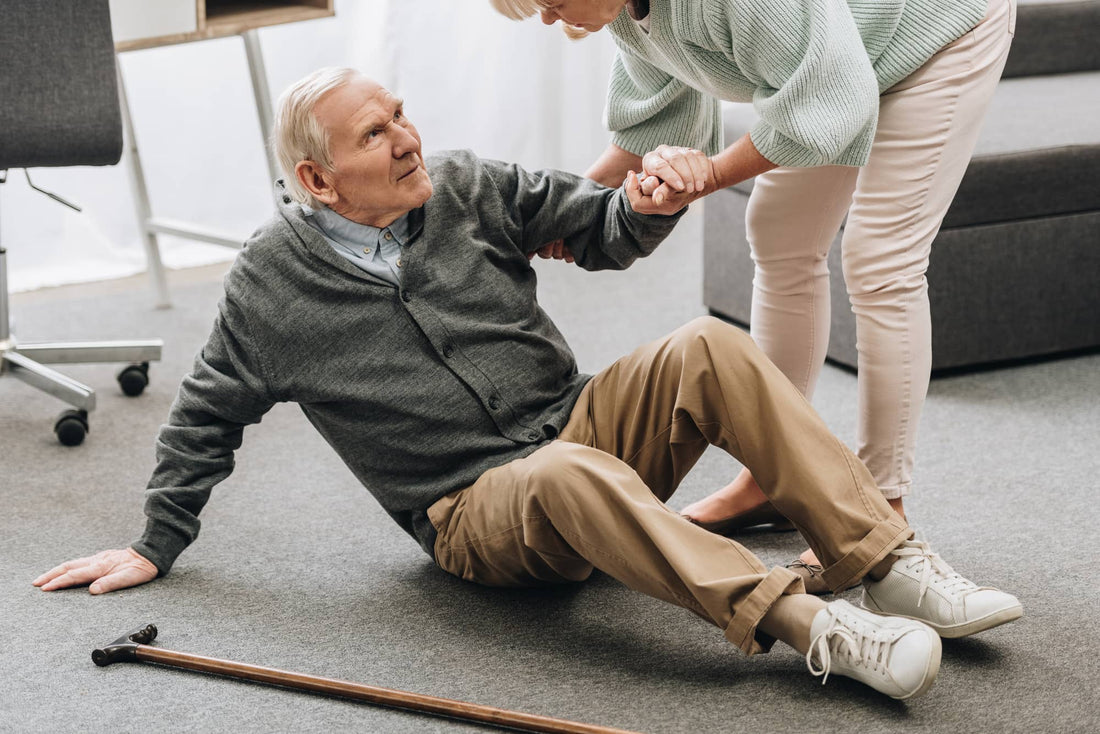
What Is a Fall Detector and Should You Have One?
Share
Falls are one of the most serious risks facing older adults in the UK. According to Public Health England, one in three people over 65 and half of those over 80 will fall at least once a year. For many, a fall isn’t just a scare — it can lead to serious injury, long hospital stays, or even permanent loss of independence.
A fall detector alarm can change that.
Why Fall Detectors Offer Smarter Protection
Unlike standard personal alarms that require the user to press a button, fall detectors go one step further — automatically raising the alarm when a fall is detected, even if the person is unconscious or unable to move.
Let’s break down what fall detectors do, how they work, and why they’re becoming essential for elderly safety.
What Is a Fall Detection Alarm?
A fall detection alarm is a wearable device designed to automatically alert a response centre or loved one if it detects that the wearer has fallen. It uses built-in motion sensors and smart algorithms to recognise sudden changes in movement, such as a fall followed by a period of no movement.
This means that even if the user is confused, injured or unable to call for help, the device will do it for them.
How It’s Different From a Standard Personal Alarm
A traditional personal alarm requires the user to press a button during an emergency. This works well if they’re alert and conscious.
But in real-life scenarios — especially with hip fractures, strokes or fainting — many people simply can’t reach or press the button.
That’s where fall detection makes a difference:
| Feature | Standard Alarm | Fall Detector Alarm |
|---|---|---|
| Manual activation | ✅ | ✅ |
| Automatic fall alerts | ❌ | ✅ |
| Works if unconscious | ❌ | ✅ |
| Passive protection | ❌ | ✅ |
Why Fall Detectors Matter More Than Ever
Here’s why more families are now choosing fall detection alarms for their loved ones:
- 50% of falls in over-80s result in hospitalisation
- One in three people who suffer a hip fracture dies within a year, often due to delays in getting help (Gov.uk)
- Ambulance response times have slowed dramatically in the UK, with non-life-threatening calls taking over 2 hours 50 minutes in some areas (The Guardian)
- Lying on the floor too long (a "long lie") can lead to pneumonia, dehydration, or death (NICE Guidelines)
The faster someone gets help, the better the outcome.
A fall detector can literally be the difference between life and death.
Who Should Use a Fall Detection Alarm?
Fall detection alarms are highly recommended for:
- Elderly people living alone
- Those with mobility issues, balance problems or previous falls
- Individuals with dementia, epilepsy, diabetes or other health conditions
- Post-surgery patients recovering at home
- Family members wanting peace of mind that help is always available
Protect Alert: Fall Detection Built In
At Protect Alert, our personal alarms come with built-in fall detection as standard — no hidden upgrades or extra costs.
Here’s what you get with our devices:
- Automatic fall detection with advanced motion sensors
- 24/7 monitoring by our UK-based emergency response team
- GPS tracking so help arrives fast, even outside the home
- No landline or Wi-Fi required
- Waterproof design – wear it in the shower, one of the most common places for falls
- Flexible monthly plans with no long-term contracts
Real Peace of Mind — For You and Your Loved Ones
Whether you're looking after a parent, grandparent, or just want to stay independent yourself, having a fall detector takes the “what if” out of everyday life.
You’ll know help is always available — even when you can’t reach for it.
Final Thoughts: Fall Detector Alarms Save Lives
Falls are unpredictable — but how we respond to them doesn’t have to be.
With a fall detection alarm from Protect Alert, you’re always one step ahead.
It’s about safety, independence, and reassurance for the whole family.
📦 Ready to protect yourself or someone you love?
👉 Browse our fall detection alarms here
📞 Call us free on 0800 048 4575
📧 Or email: conact@protectalert.co.uk